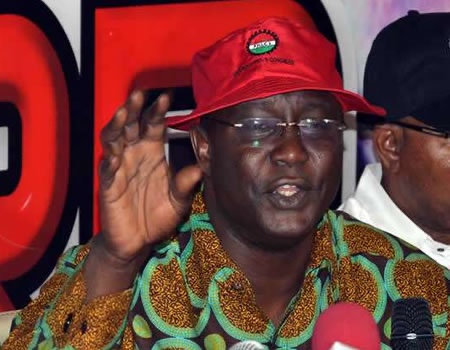ABUJA
The Nigerian Labour Congress (NLC) has called on the Federal Government to reverse the privatisation deal of the power sector, stating that the exercise has worsened the electricity supply in the country.
Speaking at the Maiden Employers Summit in Abuja, on Monday, the President of NLC, Comrade Ayuba Wabba, said the level of electricity infrastructure deficit in Nigeria was becoming intolerable.
According to him, “We demand the reversal of the power sector privatisation exercise and the return of the privatised electricity assets back to Nigerians.
“We believe that government has business in ensuring that Nigeria generates enough electricity in order to provide the private sector and private citizens with the tools they need for innovation, production, entrepreneurship and value addition for national development.”
Represented by the deputy president, Comrade Majeem Yasin, Wabba explained that “the Nigeria Labour Congress has always made the point that there can never be any meaningful national development unless we address the infrastructural gaps in our country. Of particular concern to us is the near-comatose of our public electricity supply.
“The recent slump in our national electricity generation and constant failure of our electricity grid reminds us that we still have a long way to go in making power available to power the potentials of our people.
“Organised Labour has concluded that the deteriorating state of public electricity supply in Nigeria as at today especially as evidenced by the fact that most productive and residential spaces in Nigeria no longer enjoy up to six hours of public electricity supply confirms that the recent privatisation of Nigeria’s power sector is a complete failure,” he stated.
The president further explained that “Government has tried to offer palliatives and bailout funds to the so-called private portfolio investors in our electricity sector but all to no avail. Nigerians are still paying heavily for megawatts of darkness.
“The private sector cannot wait endlessly for affordable and sustainable public electricity supply. Nigeria is losing many businesses to neighbouring African countries where electricity supply is more predictable and available.
“The high cost of running a Diesel Economy is borne by poor Nigerian workers and people as they are left to deal with hyperinflation which is not only wiping out savings but also erasing the income of the working class thereby ballooning the community of the working poor in Nigeria,” Wabba lamented.
On his part, the Minister of Labour and Employment, Dr Chris Ngige, emphasised the need for national development and growth of Nigerian structures to create jobs.
“It is, therefore, a national issue that warrants utmost attention and inputs from all relevant fora and guarantees positive orientation and sensitisation on the right path to modernisation, fair globalisation, development and the much-canvassed enthronement of the decent work agenda which is considered necessary for higher productivity that cyclically creates the engine and enhances the opportunity for the desired development.”
The President of Nigeria Employers Consultative Association (NECA), Mr Taiwo Adeniyi, said the summit was aimed at enhancing the partnership of stakeholders in creating jobs for the youths of the country.





Discussion about this post